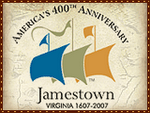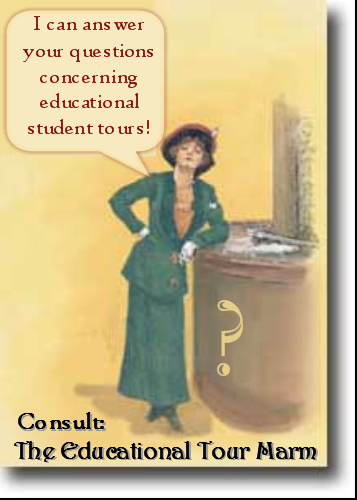
 Here's the answer to Figure It Out Friday #6
Here's the answer to Figure It Out Friday #6
I thought this would be simpler;
Quite frankly I was astounded that no one recognized Henry Wadsworth Longfellow or Lafayette! Perhaps I should have shown the older Longfellow and the younger Lafayette, but I thought showing Lafayette as a mature man would be better, after all, a full length portrait of him as he appeared in 1824 hangs in the United States House of Representative chamber! I wasn't sure though, that anyone would have recognized Longfellow as a young man without his beard! (The reason for the beard is a tragic story. I've given some sites at the end that you can consult about that.)
What they had in common was the Portland Head Light lighthouse in South Portland, ME in 1825. (I had posted 1824 as a clue since that was the date Lafayette arrived in the US.)
Portland Head Light on Cape Elizabeth is perhaps the most photographed lighthouse in the world and one of my personal favorite places to visit. (I have taken several Quebec City-bound bus tours that I picked up in Boston on unannounced side excursions to see it and then had lunch in Portland..)
Now here is the connection:
Portland Head Light
In 1797 George Washington directed that four lighthouses be built and Portland Light was one of these. He directed that masons build these lighthouses of rubblestone because the government was poor and the materials were to be taken from fields and shores. Because the Federal government was being formed, it looked as if the lighthouses would never be built, however, Alexander Hamilton did eventually authorize appropriations and work could be resumed. The engineers and masons took four years, but Portland Head Light was completed in 1790 and it was first lighted with Whale oil on January 10, 1791. Portland Head Light still stands as one of the first four lighthouses in the United States,. None of them have ever had to be rebuilt. It has remained a source of pride for the citizens of the Portland area as well as Maine.
The light was an imposing and beautiful sight and attracted a number of visitors to it on the rocky Maine promontory overlooking Casco Bay and Portland. It is a romantic vision that juxtaposes the steadfastness of the tower at the edge of treacherous rocks, against capricious weather, and somewhat violent tides. The storms in that area are of legendary proportion; there are many stories and legends of shipwrecks and lives lost.
Henry Wadsworth Longfellow
It was this romantic view that compelled a resident of Portland to write poetry and inspired a poem written over thirty years later. Young Henry Wadsworth Longfellow was born in Portland in 1807 . While he loved his city, he spent a great deal of time walking to the lighthouse and yearning for the chance to follow its beam of light to distant shores.
In 1822, he entered Bowdoin College in Brunswick, ME where he met a classmate named Nathaniel Hawthorne, who was to become a lifelong friend; they graduated together.
Lafayette
In February of 1824, the United States by Presidential (James Monroe) and Congressional Proclamation invited Citizen Lafayette to tour the country he helped to create as a nineteen year old officer. Since he had lost most of his inheritance (and title( as a result of the French Revolution, Congress appropriated $200,000 dollars and a township of land to reward him for his patriotism. In addition to that, American citizens were to raise money through subscriptions in order to lavishly to entertain him with feasts, receptions, parades, and other tributes. The culmination of his visit was a reenactment of the Battle of Bunker Hill (Breed's Hill) on its 50th anniversary. Several states extended citizenship to him and his male heirs, thus becoming a citizen of the United States*.
He initially arrived in New York City on August 24, 1824 and spent the next sixteen months spending time with old friends like Thomas Jefferson and touring virtually everyplace in the United States including Maine in June of 1825.
It was at that time that Henry Wadsworth Longfellow crossed paths with Lafayette, who was on his way to visit Portland Head Light.
Lafayette arrived in the United States a poor man, but on December 7, 1825, he returned home a wealthy, honored, and appreciated one
In 1826. Longfellow realized his dream to visit Europe ; he spent three years there and was to become a world traveler. He eventually became America’s uncrowned Poet Laureate.
The first poem below, by Longfellow, probably was inspired by Portland Head Light. it was written in 1837. The second, in my opinion, describes the lives of these two great men.
The Lighthouse
by Henry Wadsworth Longfellow
The rocky ledge runs far into the sea,
and on its outer point, some miles away,
the lighthouse lifts its massive masonry,
A pillar of fire by night, of cloud by day.
Even at this distance I can see the tides,
Upheaving, break unheard along its base,
A speechless wrath, that rises and subsides
in the white tip and tremor of the face.
And as the evening darkens, lo! how bright,
through the deep purple of the twilight air,
Beams forth the sudden radiance of its light,
with strange, unearthly splendor in the glare!
No one alone: from each projecting cape
And perilous reef along the ocean’s verge,
Starts into life a dim, gigantic shape,
Holding its lantern o’er the restless surge.
Like the great giant Christopher it stands
Upon the brink of the tempestuous wave,
Wading far out among the rocks and sands,
The night o’er taken mariner to save.
And the great ships sail outward and return
Bending and bowing o’er the billowy swells,
And ever joyful, as they see it burn
They wave their silent welcome and farewells.
They come forth from the darkness, and their sails
Gleam for a moment only in the blaze,
And eager faces, as the light unveils
Gaze at the tower, and vanish while they gaze.
The mariner remembers when a child,
on his first voyage, he saw it fade and sink
And when returning from adventures wild,
He saw it rise again o’er ocean’s brink.
Steadfast, serene, immovable, the same,
Year after year, through all the silent night
Burns on forevermore that quenchless flame,
Shines on that inextinguishable light!
It sees the ocean to its bosom clasp
The rocks and sea-sand with the kiss of peace:
It sees the wild winds lift it in their grasp,
And hold it up, and shake it like a fleece.
The startled waves leap over it; the storm
Smites it with all the scourges of the rain,
And steadily against its solid form
press the great shoulders of the hurricane.
The sea-bird wheeling round it, with the din
of wings and winds and solitary cries,
Blinded and maddened by the light within,
Dashes himself against the glare, and dies.
A new Prometheus, chained upon the rock,
Still grasping in his hand the fire of love,
it does not hear the cry, nor heed the shock,
but hails the mariner with words of love.
“Sail on!” it says: “sail on, ye stately ships!”
And with your floating bridge the ocean span;
Be mine to guard this light from all eclipse.
Be yours to bring man nearer unto man.
A PSALM OF LIFE WHAT THE HEART OF THE YOUNG MAN
SAID TO THE PSALMIST
Tell me not, in mournful numbers,
Life is but an empty dream ! —
For the soul is dead that slumbers,
And things are not what they seem.
Life is real ! Life is earnest!
And the grave is not its goal ;
Dust thou art, to dust returnest,
Was not spoken of the soul.
Not enjoyment, and not sorrow,
Is our destined end or way ;
But to act, that each to-morrow
Find us farther than to-day.
Art is long, and Time is fleeting,
And our hearts, though stout and brave,
Still, like muffled drums, are beating
Funeral marches to the grave.
In the world's broad field of battle,
In the bivouac of Life,
Be not like dumb, driven cattle !
Be a hero in the strife !
Trust no Future, howe'er pleasant !
Let the dead Past bury its dead !
Act,— act in the living Present !
Heart within, and God o'erhead !
Lives of great men all remind us
We can make our lives sublime,
And, departing, leave behind us
Footprints on the sands of time ;
Footprints, that perhaps another,
Sailing o'er life's solemn main,
A forlorn and shipwrecked brother,
Seeing, shall take heart again.
Let us, then, be up and doing,
With a heart for any fate ;
Still achieving, still pursuing,
Learn to labor and to wait.
HAPPY 200th , Henry!
Note:
* Sir Winston Churchill was the first to gain US citizenship through Presidential and Congressional proclamation)
Educational Tours and Family Holidays:
As this is a blog dedicated to educational student tours, naturally, I would like to urge you, your families, and students to visit Portland Head Light, Portland, Bowdoin College, Harvard, and all the other sights related to Henry Wadsworth Longfellow's 200th birthday. Two of my groups this year will be dining at Longfellow's Wayside Inn at Sudbury, MA after a literary tour of Concord concentrating on the Alcotts and Nathaniel Hawthorne. The Wayside Inn was where Longfellow wrote, Tales of a Wayside Inn which included the very famous, Midnight Ride of Paul Revere. The references contained in the body of the post as well as below will have visitors' information and educational programs.
References and Further Research:
Lafayette in America
Excerpt from a journal immediately before Layfayette departed for Portland
Tributes to Lafayette Idzerda, Stanley J. Lafayette: Hero of Two Worlds: The Art and Pageantry of His Farewell Tour of America, 1824–1825: Flushing, N.Y.: Queens Museum, 1989.
Marquis de Lafayette Collection: Fascinating artifacts and tributes of his visit to America
Longfellow Bicentennial 2007:
Longfellow Society
Maine Historical Society Website
Tribute Blog from Blogspot’s Philobiblos (Wonderful site!)
Longfellow National Historic Site
Postscript: : The reason for the delay in posting this is that I am currently waiting for his exact itinerary from the Maine Historical Society, who are in the process of forwarding me excerpts of his itinerary. When I receive it, I shall add it to this post.






















